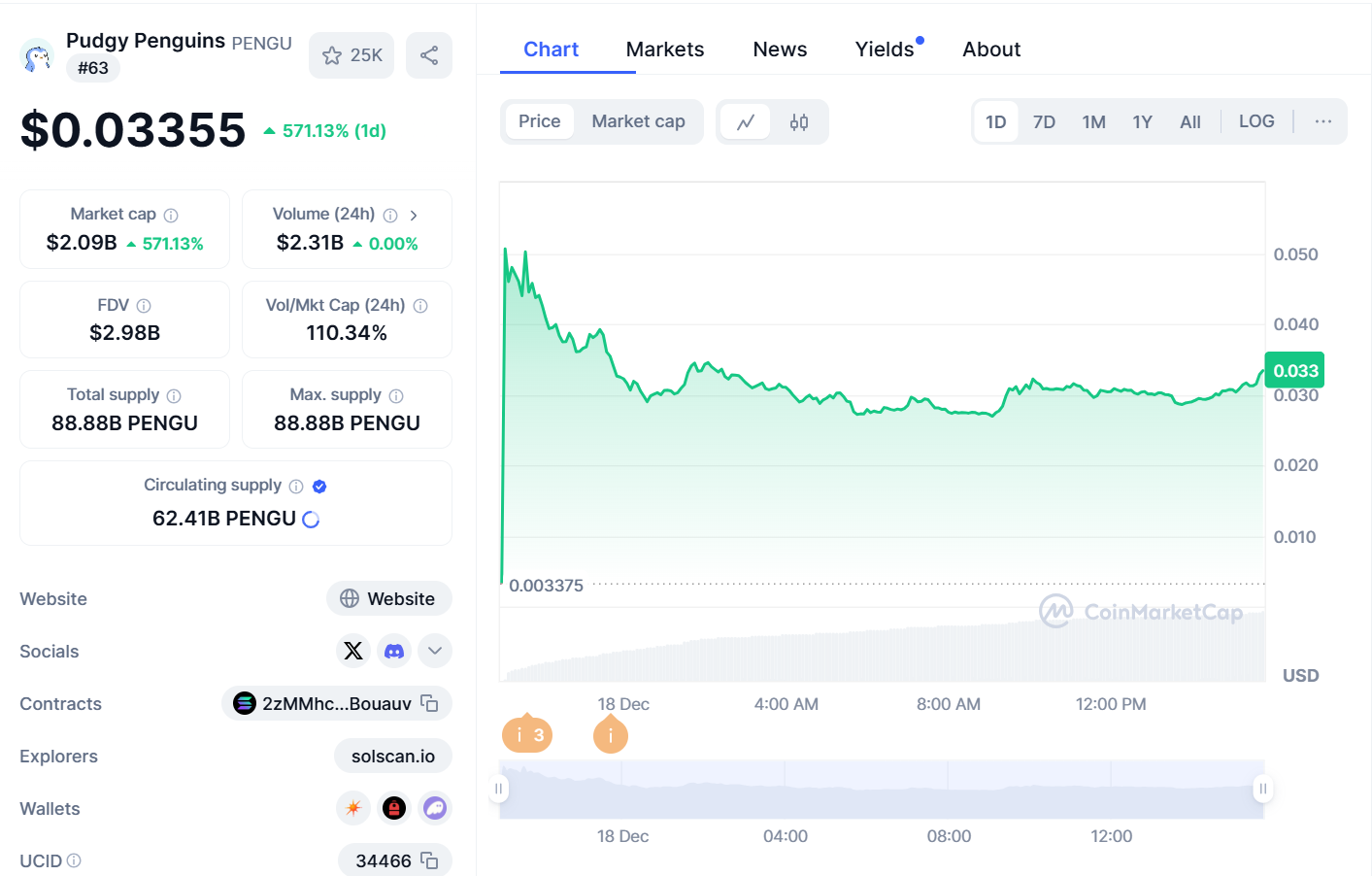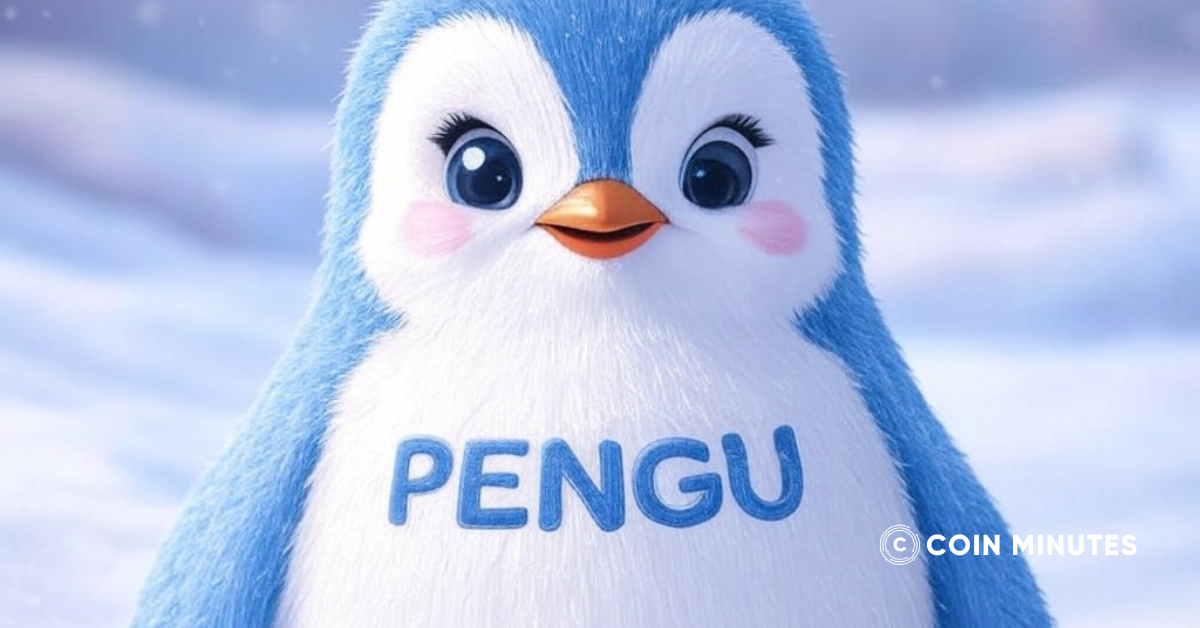In a bold move that has sent shockwaves through both the cryptocurrency and NFT spaces, Pudgy Penguins has launched its highly anticipated PENGU token on the Solana blockchain. The airdrop, which is worth a staggering $1.5 billion, offers millions of eligible NFT holders.
As of December 2024, PENGU is already making a significant mark on the market, ranking in the top 100 cryptocurrencies by market cap, with a current valuation of around $2.1 billion. The token debuted with an ambitious total supply of over 88.88 billion tokens, and just over half of this supply is being offered in the airdrop, making it a massive event in the world of digital assets.
The PENGU airdrop, which went live on December 17, 2024, is targeting various participants in the Pudgy Penguins ecosystem. Eligible claimants include holders of Pudgy Penguins NFTs, owners of NFTs from partnered collections, and even traders within the Ethereum and Solana NFT marketplaces. Furthermore, FTT holders—those who previously held the token from the now-defunct FTX exchange—are also included in the airdrop.
With an estimated 44.8 billion tokens being distributed to potentially millions of claimants, the sheer scale of the airdrop has led to significant demand. At the current price of $0.0335 per PENGU token, the total value of the airdrop is pegged at $1.5 billion. However, claimants have until March 15, 2025 to claim their tokens, after which any unclaimed tokens will be permanently locked and removed from circulation, making the window of opportunity for participants a race against time.
$PENGU is now live.
CA: 2zMMhcVQEXDtdE6vsFS7S7D5oUodfJHE8vd1gnBouauv
Learn more & how to claim your PENGU below. pic.twitter.com/ROWgq02YbF
— Pudgy Penguins (@pudgypenguins) December 17, 2024
Initial Market Performance and Volatility
After its release, PENGU quickly surged into the top 100 cryptocurrencies, settling at the 76th spot by market cap. Despite this initial success, the token experienced considerable volatility, with its price dropping by 51% on the first day after launch. The initial trading price of $0.068 saw a sharp decline, leading to concerns about the stability of the new token.
Newly launched tokens like PENGU are typically volatile, especially in the early stages, as traders and investors navigate the market’s fluctuations. This rapid price shift is a reminder of the inherent risk involved in participating in a newly minted token’s lifecycle. Despite the dip, PENGU remains highly traded, with over $1.5 billion worth of tokens changing hands within the first day, making it the 14th most-traded token in the top 100 cryptocurrencies.
Systems should be good to try claim again ✅
Very important to note, if you were only able to claim a portion of your $PENGU, please refresh site and go through the flow again.
You will see the already claimed $PENGU and the remaining $PENGU you didn’t claim. pic.twitter.com/Lz658FnG40
— Chef (@chefgoyardi) December 17, 2024
Impact on Pudgy Penguins NFTs
The launch of the PENGU token has also had a noticeable impact on the Pudgy Penguins NFTs themselves. In anticipation of the airdrop, the value of Pudgy Penguins NFTs surged dramatically, breaking the $100,000 mark for the first time and drawing closer to flipping CryptoPunks, the most valuable profile picture (PFP) collection in the NFT space.
However, as the airdrop progressed and token claims were processed, the market saw a correction in NFT prices. Many holders who had claimed their PENGU tokens quickly decided to offload their NFTs, contributing to a significant drop in value. As of now, the floor price for Pudgy Penguins NFTs stands at just over $63,000, down approximately 48% from the previous day, according to data from NFT Price Floor.

Related news: Meme Coin Mania: Trade Volumes Drop 50%, Is the Hype Fading?








